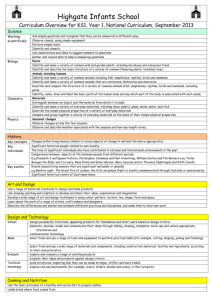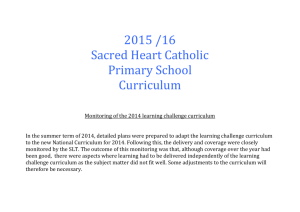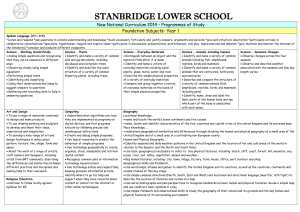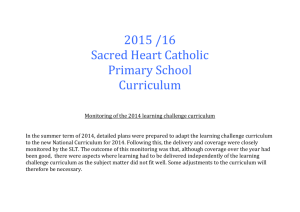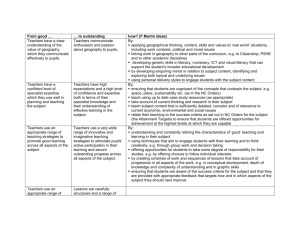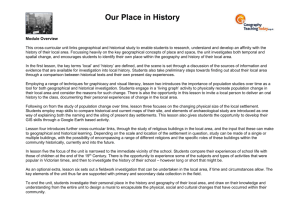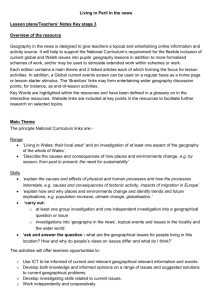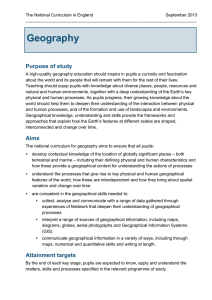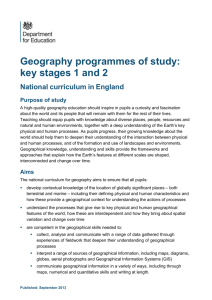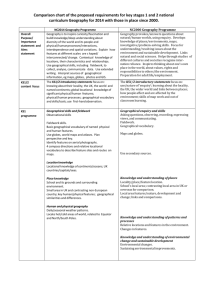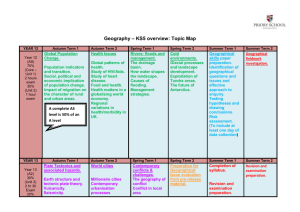Geography for website - New Longton All Saints` School
advertisement
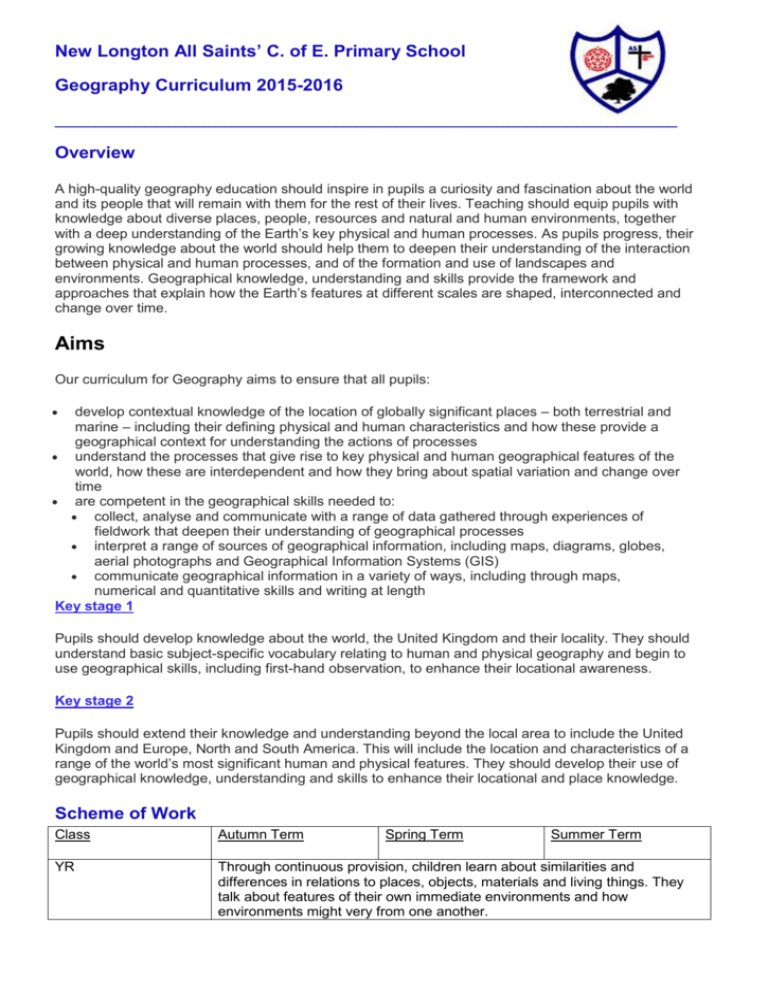
New Longton All Saints’ C. of E. Primary School Geography Curriculum 2015-2016 ______________________________________________________________ Overview A high-quality geography education should inspire in pupils a curiosity and fascination about the world and its people that will remain with them for the rest of their lives. Teaching should equip pupils with knowledge about diverse places, people, resources and natural and human environments, together with a deep understanding of the Earth’s key physical and human processes. As pupils progress, their growing knowledge about the world should help them to deepen their understanding of the interaction between physical and human processes, and of the formation and use of landscapes and environments. Geographical knowledge, understanding and skills provide the framework and approaches that explain how the Earth’s features at different scales are shaped, interconnected and change over time. Aims Our curriculum for Geography aims to ensure that all pupils: develop contextual knowledge of the location of globally significant places – both terrestrial and marine – including their defining physical and human characteristics and how these provide a geographical context for understanding the actions of processes understand the processes that give rise to key physical and human geographical features of the world, how these are interdependent and how they bring about spatial variation and change over time are competent in the geographical skills needed to: collect, analyse and communicate with a range of data gathered through experiences of fieldwork that deepen their understanding of geographical processes interpret a range of sources of geographical information, including maps, diagrams, globes, aerial photographs and Geographical Information Systems (GIS) communicate geographical information in a variety of ways, including through maps, numerical and quantitative skills and writing at length Key stage 1 Pupils should develop knowledge about the world, the United Kingdom and their locality. They should understand basic subject-specific vocabulary relating to human and physical geography and begin to use geographical skills, including first-hand observation, to enhance their locational awareness. Key stage 2 Pupils should extend their knowledge and understanding beyond the local area to include the United Kingdom and Europe, North and South America. This will include the location and characteristics of a range of the world’s most significant human and physical features. They should develop their use of geographical knowledge, understanding and skills to enhance their locational and place knowledge. Scheme of Work Class Autumn Term Spring Term Summer Term YR Through continuous provision, children learn about similarities and differences in relations to places, objects, materials and living things. They talk about features of their own immediate environments and how environments might very from one another. Y1 Human and physical Seasonal and Daily Weather Patterns Using and making maps Satellite Images Y2 Describing physical features Using and Making Maps Making Sketch Maps Making maps Locating Countries and Cities; Comparing Areas of UK with Rio Amazing Structures Around the World Location Knowledge Towers and Bridges in the Local Area Using and Giving Directions Amazing Structures Around the World Towers and Bridges in the Local Area Y3 Volcanoes and Earthquakes Ancient and Modern day Greece Using maps Y4 Using maps Seas and oceans of the world Fieldwork Using maps to locate countries and continents Plants in the local Environment and of the world Fieldwork Human and physical Using maps and aerial images Food miles and Fair trade Locational knowledge Human and physical Using maps of the world and the US Using maps Human and physical The Great Barrier Reef Environmental issues Comparing Britain and Italy Human and physical geography Y5 Location of Countries Historical Maps Human & physical features of Egypt, the River Nile. Tourism Theme parks around the world Y6 Cities and transport in the Victorian era; using maps. Locational Knowledge Human Geography; Cities of the UK Features of the Polar Regions China; Development of Industry Assessment As part of the National Curriculum reform, the previous system of ‘levels’ used to report children’s attainment has been removed. The removal of levels has allowed us a greater flexibility in the way that we plan and assess the children’s learning. The programme of study for Geography, sets out expectations for the end of each key stage, and children will be assessed against these objectives as they progress through each year.
